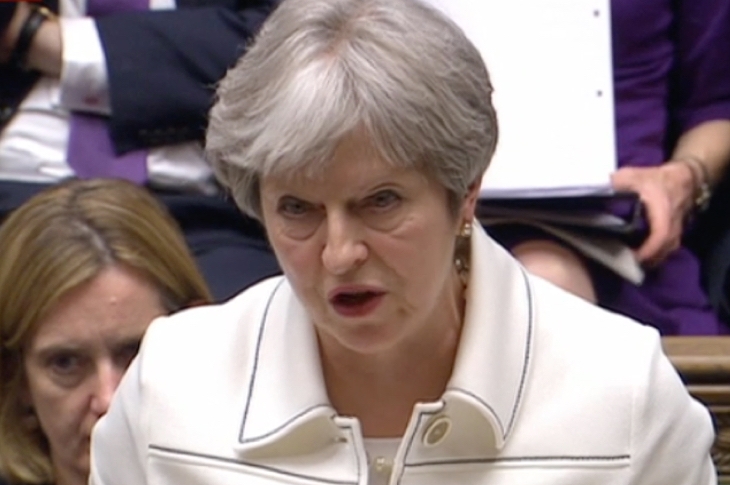Theresa May came to the House today to explain why the UK joined in the strikes on Syria’s chemical weapons facilities and why she had not consulted the House first. May argued, rightly, that there was no prospect of getting UN authorisation for action because Russia would simply veto anything that affected its client regime in Damascus. She also pointed out that if the democratic world had failed to act against Assad following these attacks, we would be slipping back to a time when the use of chemical weapons was regarded as normal.
But, perhaps, the most controversial part of her statement was on why she had not consulted parliament first. May argued that the need for speed, the fact that not all the intelligence could be shared with MPs and the fact the strike was limited and targeted justified not asking parliament’s permission first.
Personally, I think that the idea that the Prime Minister should come to parliament before any military action is not actually sensible. The constitutional order in which the executive acts and then parliament holds it accountable strikes me as preferable to the idea of the government having to ask permission before engaging in military action. But many MPs feel that they should be consulted and, as Ken Clarke pointed out, Donald Trump’s tweet had removed any element of surprise from the attack.
Jeremy Corbyn, in his response, engaged in his usual sophistry of claiming that the diplomatic route might have succeeded and that May should simply try harder on that front. He also continued to claim that we can’t be sure who carried out the attacks. But what really wound the Tory benches up was when Corbyn told May that she was accountable to parliament, not the whims of the US president. This was a predictable attack line. But it also does raise the question of whether Corbyn thinks it is in Britain’s national interest for the use of chemical weapons not to become normalised?
It is hard to remember a time when the gap between the two front benches on foreign policy has been wider. I expect that gap will help May win a parliamentary vote on this matter, if one comes. The overwhelming majority of her own side will want to support her and there’ll be enough Labour MPs who don’t want to endorse the Corbyn worldview to see her through.







Comments